For some time, I have watched franchising become increasingly difficult and have concluded that if not actually broken, then it is in desperate need of overhaul. No system is perfect and while franchising has delivered some great results, its fault lines are becoming increasingly problematic. Reform is needed.
But we should not overlook its successes. From requiring £1.5 billion of taxpayer subsidy in 1998-99, train operators made a net contribution of more than £1bn in 2014-15. Recent analysis suggests that the industry will pay between £2.1bn and £3.7bn to the Government by 2019-20. The fare box contributed 74% of total industry costs in 2015-16, so franchising has been rather successful in rebalancing railway finances. All those figures come from a just-published report by Tracks, a brand new think tank established by Campaign for Better Transport, led by Stephen Joseph.
Notwithstanding those encouraging numbers, we should not underplay the cost of the railway to the taxpayer, because it still required £4.8bn of public funding in 2015-16. And therein, says Tracks, lies one of franchising’s fundamental flaws - the fact that franchises are framed, driven and delivered principally as financial agreements between successful bidders and Government. Yes, Managing Director (Passenger Services) Peter Wilkinson has made significant progress in recent years in terms of service quality, but when the heat is on franchisees tend to be driven more by financial commitments than customer service. Fear of failure to meet contracted premium payments takes priority.
Since 2012, when the West Coast franchise award spectacularly collapsed, the system has been under increasing strain. Where once the Department for Transport required short lists of four bidders to ensure a solid competition, it is now happy with maybe two. And these bids are coming from a shrinking group of very large companies, often in alliance with each other. One-time star turn in British train operating (with nine franchises), National Express walked away last year because of rising bidding costs, shrinking returns, growing risks and increasing red tape. This has led to an increasing role in TOC ownership by European state railways who are willing to accept lower returns because of the lower-cost money to which they have access.
It has become increasingly obvious that franchising is in need of overhaul after 20 years and changed circumstances, and this searingly honest report provides a controversial starting point for discussion. Both supporters and critics will find vindication of their arguments and opinions within these pages, so I forecast some very lively discussion. The Tracks report can be an uncomfortable read and it’s depressing to plough through the mid-section where the weaknesses and contradictions of the current system are laid bare. It is all too easy to overlook that the proportion of Britain’s labour force travelling to work by rail has doubled to nearly 6% since 2002, representing an increase of c£40bn a year in economic activity. The problem is that this huge benefit is dependent on an increasingly overcrowded network in which public trust has been eroded by a confusing fares system which is perceived as overpriced. Doing nothing about this is no longer an option.
I found myself both nodding in approval and then snorting in disagreement as I read Tracks’ very detailed and forensic analysis of 20 years of franchising. In addition to agreeing with the central charge that the franchises are essentially financially driven rather than customer-focused, I also agree with the report’s clear key conclusion that before reforming franchising the Government has to decide on a clear rail and transport strategy, linked to a wider industrial and economic strategy, which it must both reinforce and reflect. This is especially important in the transformed circumstances from franchising’s birth 20 years ago, when Brexit, High Speed 2 and devolution would have seemed impossible.
As the report’s summary concludes: “It is not clear that the current franchising model is best placed to support the wider development of the rail industry or reflect its role as a key catalyst of the UK’s economy.”
Bluntly, Government cannot fudge. It must decide and make clear what our railway is for and what it wants it to do. East West Rail Chairman Rob Brighouse made clear at a recent RAIL 100 Breakfast Club that the decision must be made as to what the reborn ‘Varsity Line’ is actually for? If it’s a plain vanilla double-track electric passenger railway, then fine. But if it’s decided that all bridges and structures should be expensively rebuilt to ensure that intermodal trains can use it if required, then who pays? What is that railway for? Who is going to use it? How much do we want to spend? The same principle, with far bigger and different questions, applies to the wider network. Those questions must be answered - and only Government can provide those answers.
Then there’s devolution. Back in 1998, suburban and commuter railways were all franchised. Not any more. In Liverpool and London, Merseytravel and Transport for London now run metro and suburban services. Such devolution is accelerating with organisations such as Transport for the North and a string of metropolitan areas and city regions, each with their emerging mayors, taking over local transport. This changes the franchise map radically. And so Tracks asks if we should now license our inter-city main lines by selling groups of paths to groups of operators to provide choice, competition and diversity. I’m not convinced by that idea, but a compelling case could certainly be made for long-term licensing (maybe even selling) of our IC routes - with due protection, of course, for early-morning and late-night trains.
Transport Scotland proves that devolved strategic planning works far, far better than management from Whitehall. The same principle, already proven in Liverpool and London, will be seen progressively as devolution proceeds - but adequate funding must be devolved, too.
Things have changed radically since 1998. Franchising now needs to change, too - and pretty urgently.
The current system fails to support a coherent way of encouraging train and infrastructure investment in a way which takes proper account of whole life costs. My recent Comment (RAIL 824) about the SWT franchise renewal - where a brand new fleet of Siemens EMUs bought by Angel Trains will be out of service after just two years - makes this painfully clear. Likewise the current franchise model has failed to facilitate optimal infrastructure investment, where Network Rail has thus far been unable to find a way to simply and effectively secure third party investment.
This has been described to me as a ‘wall of money’ - all ready to be invested in rail.
Why would we not wish to secure that?!
Comment: RAIL 826: May 10 2017 - May 23 2017

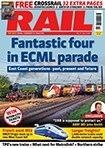
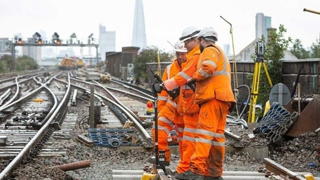
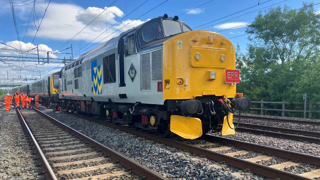
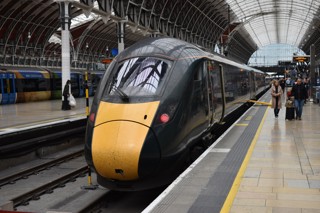
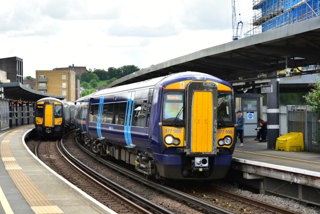
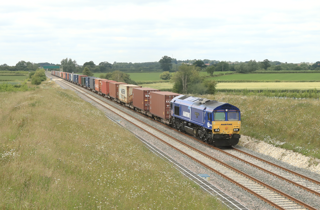







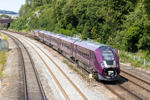


Login to comment
Comments
No comments have been made yet.